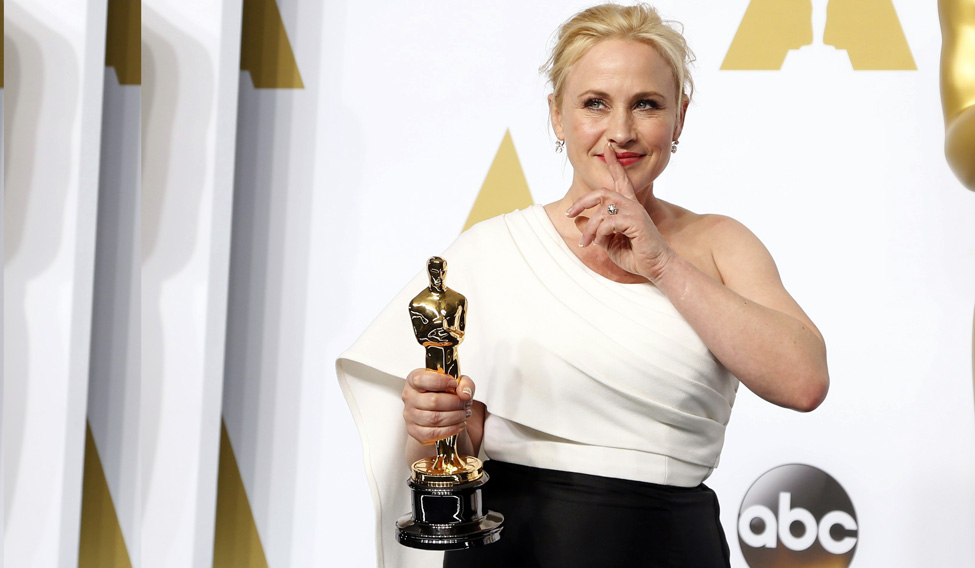When we see a film, we are always conscious of its artistic side. We see actors and the plot at work, and the sets, costumes and other bells and whistles that make each and every frame. But what we often do not see is a film’s politics. It could be as invisible as the film’s director or cinematographer, but that doesn’t mean it is not there.
Perhaps, no major awards ceremony affirms the link between arts and politics so well as the Oscars does. Forty years ago, Marlon Brando sent activist Sacheen Littlefeather to snub the Best Actor he won for The Godfather by delivering a speech about Hollywood’s mistreatment of Native Americans. Since then, filmmakers have regularly used the Oscars as a platform to air their political views.
This year’s awards night wasn’t any different. There were brickbats against President Trump and his politics of hate, and shout-outs to those at the bayonet end of America’s military adventures in the Middle East. Awards were dedicated to refugees and marginalised communities, both within and outside America, while a Latino actor spoke out against Trump’s promise to build a wall on the US-Mexico border. There were hugs and kisses all around as the world’s highest paid group of artistes put up a jolly good show of solidarity.
But, like in the case of films, what we could see was less interesting than what we couldn’t. There was no acceptance speech or red-carpet soliloquy that specifically addressed any gender-related issue. At least none that made an impact. From the kind of criticism directed at Trump, it was apparent that his garden-variety misogyny wasn’t as offensive as his other, perceivably more shock-worthy prejudices.
Things had been different in 2015, when Obama was in charge and Patricia Arquette won Best Supporting Actress for Boyhood. “To every woman who gave birth, to every taxpayer and citizen of this nation, we have fought for everybody else’s equal rights,” Arquette said in her acceptance speech. “It’s our time to have wage equality once and for all, and equal rights for women in the United States of America.”
It was obvious that her heart was in the right place, but some said her speech wasn’t. She drew much criticism for suggesting that women who gave birth were somehow superior than women who could not or chose not to.
Such cynicism may have deterred this year’s winners from speaking their mind on gender politics. Still, it was surprising that none of them even tried. It was as though problems faced by women had suddenly ceased to exist, or that female artistes were now on an equal footing with their male colleagues.
 A still from Passengers
A still from Passengers
One could argue that the latter was partly true. Last year, for the first time in the history of Hollywood, a woman actor playing a supporting role was paid prodigiously more than her male co-star who played the lead. The woman was Oscar-winner Jennifer Lawrence, her male co-star was Chris Pratt (who is yet to receive a nomination) and the film was an interstellar love story called Passengers.
So, why did one not hear feminist-minded people going gaga over this feat? One reason could be that the script demanded that Lawrence strip off for an intimate scene, and allow Pratt to come on top.
There you have the politics. One could say it wasn’t Pratt, but patriarchy, that came on top. Also, a pivotal twist in the film’s plot confirms to the archetype of a brave man helping a damsel in distress, when in fact that brave man himself is responsible for the damsel’s distress.
It is obvious that feminism—both as a movement and as an ideology that deals with gender-related matters in a comprehensive way—has made its peace with market realities. It is difficult to get women-centric films made in Hollywood, let alone feminist-minded ones. So, if you are a woman artiste who wants to do well both financially and artistically, it is in your interest to take the money and not bother about issues. You can, of course, talk politics at such prestige platforms as the Oscars.
One could argue that this is what happened in the case of Passengers. Off screen, both Lawrence and Pratt come across as liberal-minded persons who understand the complexities involved in gender relations. Their film, however, is bereft of all these complexities. But the fact that they chose to act in it speaks volumes about the culture we are part of.
If such is the state of affairs in Hollywood, where there is a good number of influential woman artistes who can afford to speak out on gender discrimination, what about other film industries? What about Bollywood, which churns out film after film that glorifies ill-treatment of women, and where most woman artistes, at least those of a certain age, are considered commodified objects of desire?
The truth is that we, the ticket-buyers, are to blame for this sorry state of affairs. You can’t keep buying tickets for films like Great Grand Masti, in the hope that one fine day Bollywood would make its own Suffragette. It just won’t happen. Ask any economist why, and they would tell you fancy theories involving the words demand and supply.









